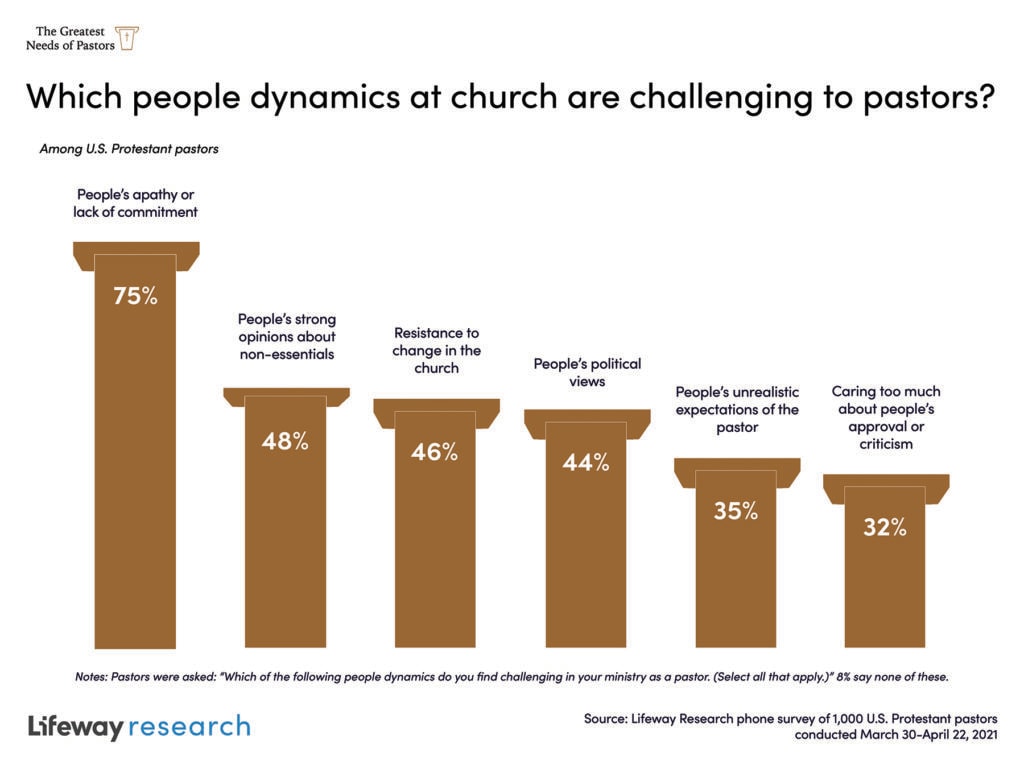Let’s face it: a pastor is the face of their ministry. In today’s world, strong pastoral branding is essential for building a lasting ministry.
A pastoral brand is more than just a logo or tagline—it’s about how people see you, your values, and your mission. It’s the unique identity that sets you apart and helps you connect with your congregation and community. By developing a clear and consistent brand, you can create a ministry that is recognizable, trustworthy, and impactful.
In this podcast, we will explore key strategies for building a pastoral brand, from defining your core values to engaging with your audience both in person and online. Whether you are just starting out or looking to strengthen your ministry, these tips will help you develop a brand that reflects your faith and vision while remaining authentic to your calling.
Let’s take a closer look at how you can build a strong and lasting pastoral identity.
Estimated reading time: 11 minutes
Table of contents
Your Pastoral Branding

What is a Pastoral Brand?
A pastoral brand is the unique identity that a pastor or church leader creates for their ministry. Just like businesses have brands, churches and pastors also need a clear identity that helps them stand out and connect with people.
Your pastoral brand should reflect who you are, what you believe in, and how you lead. It should be based on your personal values, your church’s mission, and the way you communicate with others. A strong pastoral brand helps build trust and makes it easier for people to relate to you and your ministry.
This brand can help with church growth by making your message and identity clear to those you serve.
The Importance of a Visible Brand
Your pastoral brand should be visible in everything you do. This includes your preaching, how you lead your church, and the way you engage with your congregation and the community.
Your church website is one of the first places people may encounter your brand. It should clearly communicate who you are and what your church stands for. The design, layout, and content of your website all contribute to your visible brand. This includes the design elements like your logo, colors, and images. Consistency in these elements helps people recognize your ministry quickly, whether they’re visiting your website, attending a service, or coming to the next event you host.
Having a strong visible brand also means being clear and consistent in your messaging. Your sermons, blog posts, and social media should all speak with the same voice. This helps build a brand image that is familiar to your congregation.
If everything you share aligns with the values and mission of your church, people will come to trust that your message is genuine. This trust helps your ministry grow because people know what to expect when they engage with your brand.
Aligning Your Brand with Your Values
It’s important to make sure that your brand reflects who you truly are. People can tell when a brand doesn’t feel real or when it changes too much from one message to the next. Just like you want consistency in your church’s look and feel, you need to make sure your message stays the same way across all platforms.
This applies to your church communications through newsletters, social media posts, and announcements from the pulpit. The tone, language, and style should always reflect the same core values. Whether you’re promoting your next event or sharing a personal story, your voice should be consistent.
As you develop your brand, think about what matters most to you and your ministry. What are the key values that define your leadership? Your church website, your sermons, and your engagement with the community should all communicate those values clearly. When your pastoral brand is aligned with your personal values, it helps people connect with your message, which can lead to church growth. A strong brand, rooted in authenticity, ensures that your ministry is not only recognizable but also trusted by the people you serve.
7 Keys to Building Your Pastoral Brand

And that’s everything you need to know about the basics of pastoral branding! In this section, we’ll go over 7 strategies to help you build your pastoral brand. We encourage you to implement as many of these keys as you can while building your brand.
1. Core Values and Mission
Core values and mission are the foundation of any effective church branding strategy. Your core values reflect what is most important to your church and guide your actions and decisions. These values shape how you lead, preach, and engage with your congregation.
A clear mission statement builds on these values by outlining your church’s purpose and goals. Together, core values and mission create a strong identity that people can understand and connect with.
When your church’s branding is aligned with your core values and mission, it becomes easier for people to see what your ministry stands for. This consistency helps build trust and loyalty within your congregation. Whether you’re sharing a sermon, promoting an event, or updating your church website, everything should point back to your mission. A strong sense of purpose keeps your church branding focused, helping your ministry grow and make a lasting impact.
2. Consistent Messaging
Consistency in messaging and communication is essential for building a strong ministry identity. As a pastor, your message should always point to Christ and reflect the values of your ministry.
Whether through sermons, social media, or your church website, everything you share should have the same tone, focus, and core message. This ensures that your congregation knows what to expect and can trust your words.
In every area of church life, from Sunday services to outreach efforts, consistency helps people understand who you are and what you stand for. If your communication is clear and aligned with your mission, it becomes easier for your congregation to stay connected and engaged.
Consistency also means that what you say in one place should match what you say in another. Whether people hear you speak or read your blog, they should feel the same message of faith and life in Christ coming through.
3. Community Engagement
Engaging with your congregation and community is key to building strong relationships and growing your ministry. When you actively connect with people, you create a sense of belonging and trust. This engagement can happen through personal interactions, events, and outreach. Showing genuine care and being approachable helps your congregation feel valued. Engaging beyond the church walls, such as through community service or local partnerships, demonstrates that your church cares about the community’s needs.
Building these connections also strengthens your ministry’s message. When people feel connected to you, they are more likely to support and participate in your church’s mission. Here are a few simple ways to engage:
- Hold regular social events to foster fellowship.
- Offer small groups or Bible studies to build deeper relationships.
- Serve the local community through outreach projects.
- Use social media to maintain regular communication with members.
By staying engaged, you create a vibrant, caring church community.
4. Utilizing Digital Platforms

Leveraging digital platforms is crucial for modern ministry growth. In today’s connected world, people often turn to the internet to find a church or learn more about their faith. Your church website, social media channels, and online content can help you reach a wider audience and engage with both current members and potential newcomers. A well-designed website with clear information about your mission, services, and events makes it easy for people to connect with your ministry.
Social media platforms like Facebook, Instagram, and YouTube are also powerful tools for spreading your message. Posting regular updates, sermon clips, and inspirational content can keep your congregation engaged throughout the week. Online live-streaming or recorded services allow people who can’t attend in person to still be part of the community. By using digital platforms effectively, you can grow your ministry’s reach, strengthen relationships, and provide spiritual support to a broader audience.
5. Personal Development
Leadership and personal development are important parts of being a pastor. As a leader, your growth influences your church and congregation. When you develop yourself, you become a better leader for others. Personal development includes growing in your faith, learning new skills, and staying humble. It’s important to spend time in prayer, Bible study, and reflection, so you can continue to grow spiritually.
A good leader also seeks out learning opportunities. This might mean attending workshops, reading books, or connecting with other pastors. Being open to learning helps you lead with fresh ideas and wisdom.
Additionally, leadership requires setting a good example. Your congregation looks to you for guidance, not just through your words but also through your actions. Living out your faith and being honest about your challenges shows humility and encourages others to grow too. When you focus on your own growth, it benefits both you and the church.
6. Navigating Challenges
Navigating challenges is a normal part of being a pastor. Whether dealing with personal struggles, church conflicts, or unexpected changes, facing challenges with faith and patience is key. It’s important to remember that these moments can help you grow and strengthen your ministry. When difficult times come, staying true to your values and leaning on God for guidance will help you move forward.
People are looking to you as a leader to see how you deal with challenges. It’s one thing to be a good example when everything is going swell. But how do you act when things aren’t going your way? What do your words and actions put forward when unforeseen challenges arise?
Let’s take a common example. According to Lifeway Research, 75% of pastors report being challenged by someone’s apathy or lack of commitment. How would you deal with this challenge?

Here are some simple ways to handle challenges:
- Pray for wisdom: Seek God’s guidance in all decisions.
- Stay connected with your congregation: Open communication helps build trust.
- Ask for help: Rely on church leaders, mentors, and other pastors for support.
- Be patient: Some problems take time to resolve, so give them time.
- Stay positive: Focus on solutions, not just the problems.
By approaching challenges with a calm and trusting heart, you can lead your church through hard times with strength and faith.
7. Maintaining Integrity
Maintaining integrity is essential for a pastor’s leadership and influence. Integrity means being honest, trustworthy, and consistent in your words and actions. When you lead with integrity, your congregation can rely on you to make decisions that align with your values and faith. It also means being true to your commitments, whether in your personal life or in the church.
Living with integrity shows that you are accountable to both God and your congregation. It’s important to follow through on promises, speak truthfully, and admit mistakes when they happen. This builds trust and sets a strong example for others to follow.
Integrity also involves setting healthy boundaries. It’s easy to become overwhelmed with responsibilities, but taking care of your own spiritual and emotional health is important. By living authentically and upholding your values, you lead your church with strength, and your congregation will respect and follow your example.
Your Ministry Identity

In conclusion, developing a strong pastoral brand is crucial for building a lasting and impactful ministry. By focusing on core values, consistent communication, and authentic leadership, you create a ministry identity that reflects your faith and mission.
Engaging with your congregation and community helps build relationships, while leveraging digital platforms expands your reach and influence. Through challenges, maintaining integrity and continually investing in personal development will ensure that your leadership remains rooted in trust and authenticity.
Remember, your pastoral brand is not just about appearances—it’s about aligning your life and ministry with your calling in Christ. As you grow in your journey as a pastor, stay true to your values and purpose, and your ministry will flourish.
With a clear and intentional brand, you will inspire and lead others in a way that honors God and supports your church’s mission.
Let us know if you have any other ideas for building a solid pastoral brand in the comments below! God bless!
More Resources on Church Branding





